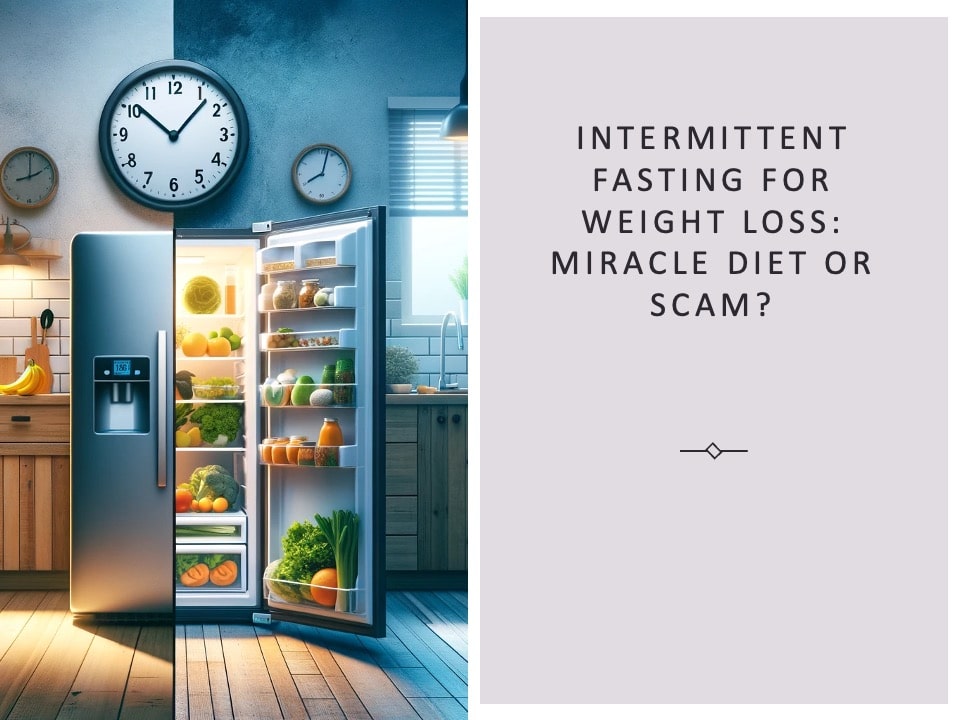Intermittent Fasting: Benefits, Risks, How to Do Properly
Intermittent fasting has become one of the most popular approaches to nutrition, praised for its ability to support weight management, increase energy, and improve overall health.
Unlike traditional diets that focus on strict calorie restriction, intermittent fasting emphasizes when you eat rather than what you eat.
As a professional basketball player, I’ve personally relied on the 16:8 intermittent fasting method throughout my offseason and on rest days during the season.
It has been one of the most effective tools I’ve used for improving body composition, increasing energy, and staying lean without sacrificing strength or performance.
Over the years, intermittent fasting has consistently helped me manage my weight while also giving me more clarity and endurance on the court.
In this article, I’ll share the benefits and potential risks of intermittent fasting, along with practical tips for doing it properly.
By combining scientific research with my firsthand experience as an athlete, I aim to help you determine intermittent fasting aligns with your lifestyle and supports your long-term health.
What is Intermittent Fasting?
Intermittent fasting is defined as an eating pattern that alternates periods of fasting with meals during the same 24 hour cycle.
In other words, you restrict the window of time that you eat.
Keep in mind that intermittent fasting isn’t a diet.
You don’t have to restrict calories or even cut out anything from your diet unless you want to.
Secondly, you don’t intermittent fast every single day.
You do it throughout the week, maybe 3-4 times a week, and just eat normally for the next 3-4 days.
For this reason, most people who follow the intermittent fasting diet pattern often adopt another form of diet, such as the Paleo, Keto, or vegetarian or vegan diet.
An example of intermittent fasting is to stop eating 4 or 5 pm the evening before, workout in the morning, skip breakfast, and then eat a brunch around 11:30/12:00 pm.
Ideally, you should eat within a frame of 8 hours per every 24 hours.
During the 6-8 hour window that you do consume food, the focus should be on healthy proteins and fats while limiting carbohydrates.
Benefits of Intermittent Fasting

Research continues to reveal the wide-ranging benefits of intermittent fasting for both physical and mental health.
While many people turn to fasting for weight management, its impact goes far beyond simply shedding pounds.
From improved energy to better brain function, intermittent fasting can be a powerful lifestyle tool.
As someone who has used 16:8 fasting for years throughout my professional basketball career, I’ve experienced many of these benefits firsthand.
Increased Longevity and Vitality
Intermittent fasting gives your body dedicated time to rest, repair, and reset.
Studies suggest it can influence markers of aging and longevity by improving cellular function and reducing oxidative stress (Wegman et al., 2015).
Instead of constant digestion, your body focuses on maintenance, which may help you live healthier for a longer period.
Personally, I’ve noticed that fasting not only keeps me leaner during the offseason but also helps me feel lighter and more energetic.
Brain Health
One of the most fascinating effects of intermittent fasting is on brain health.
Fasting has been shown to improve memory, focus, and mood, while also stimulating autophagy, a process in which the body clears out damaged cells and recycles them for survival (Gudden et al., 2021).
This cellular “cleanup” may protect against age-related cognitive decline and support long-term brain health.
I’ve found that my concentration during training sessions and even writing improves when I’m fasting, likely due to this sharper neurological state.
Hormone Regulation
Weight management is often more than just about calories; it’s about maintaining hormone balance.
Insulin, leptin, and ghrelin, hormones associated with blood sugar regulation, satiety, and hunger, can become dysregulated due to poor eating habits.
Intermittent fasting helps bring these hormones back into balance, stabilizing blood sugar and reducing unnecessary cravings.
For me, this balance is a key reason fasting works. It makes it much easier to avoid overeating and maintain the body composition I need as an athlete.
Increased Fat Burning

Perhaps the most well-known benefit of intermittent fasting is its ability to accelerate fat burning.
By lowering insulin levels, fasting shifts the body away from relying on glucose and toward burning stored fat as an energy source.
Training in a fasted state can further amplify this effect, especially when paired with simple enhancers that don’t “break” your fast, like black coffee or green tea before workouts.
Throughout my career, I’ve used intermittent fasting for weight loss as a way to efficiently cut fat without losing strength, making my gym sessions more productive and body composition easier to manage.
How to Do Intermittent Fasting Properly

Intermittent fasting is simple in concept, but doing it correctly can make the difference between success and frustration.
The goal is not to deprive yourself of food, but to establish a structured eating pattern that suits your lifestyle.
Over the years, I’ve used intermittent fasting, particularly the 16:8 method, as a professional basketball player to stay lean, energized, and consistent with my nutrition, both in the offseason and on off days during my season.
Choose the Right Fasting Window
The most common method is the 16:8 approach, where you fast for 16 hours and eat during an 8-hour window.
For many people, this means skipping breakfast and eating their first meal around late morning or noon, then finishing their last meal by 7–8 p.m.
Other variations, like 14:10 or 18:6, can also be effective depending on your schedule and goals.
Stay Hydrated
Water, black coffee, and unsweetened tea are all allowed during fasting hours.
Hydration is one of the most overlooked aspects of fasting, yet it’s essential for managing hunger and supporting energy levels.
I often use black coffee before my morning workouts, which keeps me sharp without breaking my fast.
Focus on Nutrient-Dense Foods
When you do eat, quality matters.
Build meals around lean proteins, healthy fats, vegetables, and whole-food carbohydrates.
Avoid the temptation to binge on processed foods during your eating window, as this can undo the benefits of fasting.
I’ve found that prioritizing protein-rich meals helps me recover faster from training while staying fuller for a longer period.
Ease Into It
If you’re new to intermittent fasting, start gradually.
Begin with a 12:12 window (12 hours fasting, 12 hours eating) and slowly work toward 14:10 or 16:8.
This helps your body adjust and makes the habit more sustainable.
Listen to Your Body
Intermittent fasting should work with your body, not against it. Pay attention to signs of fatigue, dizziness, or low energy.
If fasting leaves you feeling consistently weak or irritable, it may not be the best fit.
As an athlete, I only fast on days when I know my training schedule allows it.
During heavy practice or game days, I sometimes shorten the fasting window or skip it altogether to ensure proper fueling.
Final Thoughts: Should You Try Intermittent Fasting?
Intermittent fasting is not a one-size-fits-all solution, but it can be a powerful tool for improving body composition, regulating energy levels, and promoting long-term health.
For me, it has been one of the simplest and most sustainable nutrition strategies I’ve used throughout my career.
That said, intermittent fasting isn’t the best choice for everyone.
People with certain medical conditions, high-intensity training demands, or a history of disordered eating should consult with a healthcare provider before starting.
The key is to view fasting as a flexible eating pattern, not a rigid diet. If you approach it with balance, while focusing on hydration, nutrient-dense meals, and listening to your body, it can become a lifestyle habit that improves both health and performance.
If your goal is weight management, improved energy, or simply a more mindful relationship with food, intermittent fasting is worth trying.
Start gradually, find a fasting window that fits your schedule, and remember that the real success comes from consistency and sustainability.
Read Next: What is the Healthiest Diet?
This website does not provide medical advice. This website site does contain affiliate links, and purchases may earn a commission.
Read my Medical Disclaimer, Review Disclaimer, and Publishing Policies for more details. Use of this site indicates acceptance of these terms.



